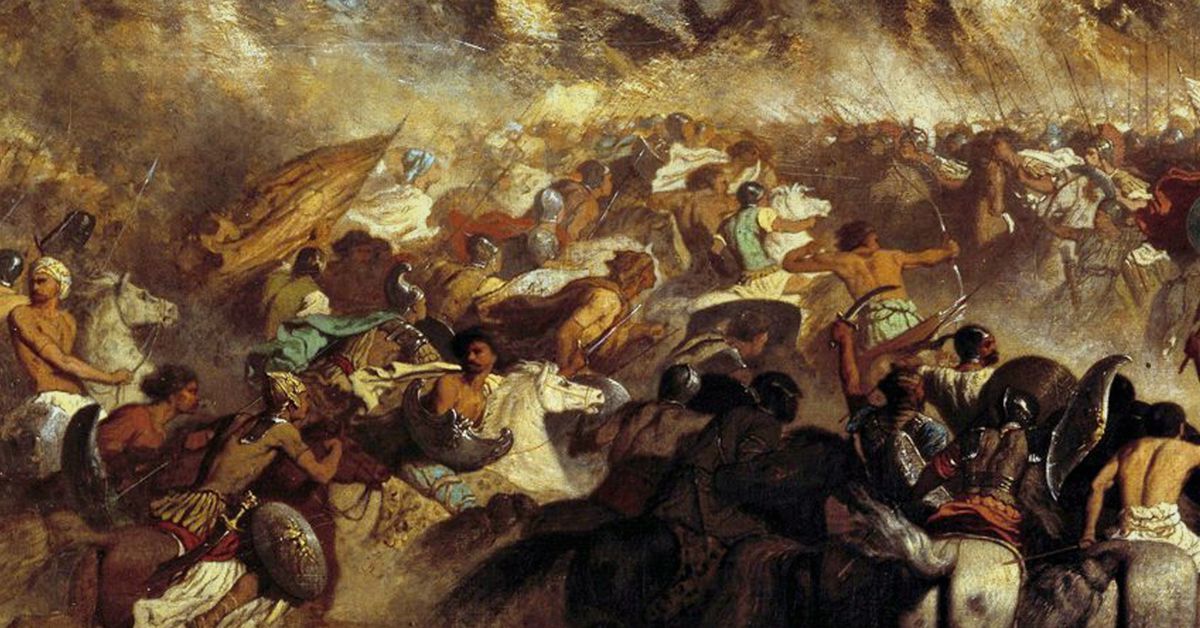
Cyrus the Great is a name that echoes through history, known for his incredible military conquests and the establishment of the vast Achaemenid Empire. But what makes his wars so fascinating? Cyrus wasn't just a conqueror; he was a visionary who reshaped the ancient world. His campaigns against the Medes, Lydians, and Babylonians weren't just about expanding territory. They were about unifying diverse cultures under one rule. Ever wondered how he managed to achieve such feats? This blog post dives into 30 intriguing facts about the wars of Cyrus the Great, shedding light on his strategies, battles, and the legacy he left behind. Get ready to journey through time and discover the brilliance of one of history's greatest military minds.
Key Takeaways:
- Cyrus the Great, a legendary ruler, conquered vast territories with innovative military tactics and benevolent governance, leaving a lasting legacy that influenced future empires and military leaders.
- His conquests, including the fall of Babylon and the Battle of Thymbra, showcased his strategic genius and humane treatment of defeated peoples, earning him loyalty and respect.
The Early Life of Cyrus the Great
Cyrus the Great, founder of the Achaemenid Empire, led a life filled with conquests and strategic battles. His early years set the stage for his future as a legendary ruler.
- Born around 600 or 576 BCE, Cyrus was the son of Cambyses I, king of Anshan, and Mandane of Media.
- According to legend, his grandfather Astyages, king of Media, had a dream that Cyrus would overthrow him, leading to an attempt on Cyrus's life as a baby.
- Raised by a shepherd, Cyrus eventually returned to claim his rightful place, fulfilling the prophecy by defeating Astyages.
Conquests and Expansion
Cyrus's military campaigns were marked by strategic brilliance and humane governance. His conquests expanded the Persian Empire to unprecedented heights.
- In 550 BCE, Cyrus defeated Astyages, marking the beginning of the Persian Empire.
- He conquered Lydia in 546 BCE, adding significant wealth and territory to his empire.
- The fall of Babylon in 539 BCE was one of his most notable victories, achieved without significant bloodshed.
- Cyrus's empire stretched from the Aegean Sea to the Indus River, making it the largest empire the world had seen.
Military Strategies and Tactics
Cyrus's success in warfare was not just due to his bravery but also his innovative military strategies and tactics.
- He employed a mix of cavalry and infantry, adapting his tactics to the strengths and weaknesses of his enemies.
- Cyrus was known for his use of psychological warfare, often winning battles without fighting by demoralizing his opponents.
- He built a network of roads to facilitate rapid troop movements and communication across his vast empire.
Governance and Policies
Cyrus's approach to governance was revolutionary for his time. He is remembered not just as a conqueror but also as a benevolent ruler.
- The Cyrus Cylinder, often considered the first charter of human rights, proclaimed freedom of worship and abolished forced labor.
- He allowed the Jews exiled in Babylon to return to their homeland and rebuild their temple in Jerusalem.
- His administration was marked by a policy of tolerance and respect for the cultures and religions of the conquered peoples.
Legacy and Influence
Cyrus's impact extended far beyond his lifetime, influencing future generations and empires.
- Alexander the Great admired Cyrus and sought to emulate his leadership style.
- The Achaemenid administrative system influenced subsequent empires, including the Roman and Byzantine Empires.
- Cyrus's legacy is celebrated in modern Iran, where he is regarded as a national hero.
The Battle of Opis
One of the key battles during Cyrus's reign was the Battle of Opis, which played a crucial role in his conquest of Babylon.
- Fought in 539 BCE near the Tigris River, the battle saw Cyrus's forces decisively defeat the Babylonian army.
- The victory at Opis paved the way for the capture of Babylon, one of the wealthiest cities of the ancient world.
- Cyrus's humane treatment of the defeated Babylonians earned him their loyalty and respect.
The Fall of Babylon
The capture of Babylon was a turning point in Cyrus's career, showcasing his strategic genius and diplomatic skills.
- Cyrus entered Babylon without a fight, as the city's gates were opened by defectors.
- He respected the local customs and religions, which helped him gain the support of the Babylonian populace.
- The fall of Babylon marked the end of the Neo-Babylonian Empire and solidified Cyrus's reputation as a great ruler.
The Battle of Thymbra
Another significant battle in Cyrus's military career was the Battle of Thymbra, fought against the Lydian king Croesus.
- The battle took place in 547 BCE near Sardis, the Lydian capital.
- Cyrus used innovative tactics, including the use of camels to scare the Lydian horses, leading to a decisive victory.
- The defeat of Croesus and the capture of Sardis brought immense wealth and resources to the Persian Empire.
The Legacy of Cyrus's Wars
Cyrus's military campaigns left a lasting legacy, shaping the course of history for centuries to come.
- His conquests laid the foundation for the Achaemenid Empire, which lasted for over two centuries.
- Cyrus's policies of tolerance and respect influenced the governance of future empires.
- His military strategies and tactics were studied and emulated by later military leaders.
The Death of Cyrus the Great
Cyrus's death remains shrouded in mystery, with various accounts providing different details.
- According to Herodotus, Cyrus died in battle against the Massagetae, a nomadic tribe in Central Asia, around 530 BCE.
- Other accounts suggest he died peacefully in his capital, Pasargadae, where his tomb still stands as a testament to his legacy.
Final Glimpse at Cyrus the Great's Wars
Cyrus the Great's wars reshaped ancient history. His military genius and strategic prowess expanded the Persian Empire, making it one of the largest empires of its time. From the conquest of Media to the fall of Babylon, each campaign showcased his ability to blend diplomacy with warfare. His respect for local customs and religions earned him loyalty from conquered peoples, setting a precedent for future rulers. The legacy of Cyrus's wars extends beyond his lifetime, influencing military strategies and governance models for centuries. Understanding these conflicts offers valuable insights into the complexities of ancient warfare and leadership. As we reflect on these 30 facts, it's clear that Cyrus's impact on history remains profound and enduring. His wars were not just battles for territory but also for the hearts and minds of those he ruled.
Frequently Asked Questions
Was this page helpful?
Our commitment to delivering trustworthy and engaging content is at the heart of what we do. Each fact on our site is contributed by real users like you, bringing a wealth of diverse insights and information. To ensure the highest standards of accuracy and reliability, our dedicated editors meticulously review each submission. This process guarantees that the facts we share are not only fascinating but also credible. Trust in our commitment to quality and authenticity as you explore and learn with us.


